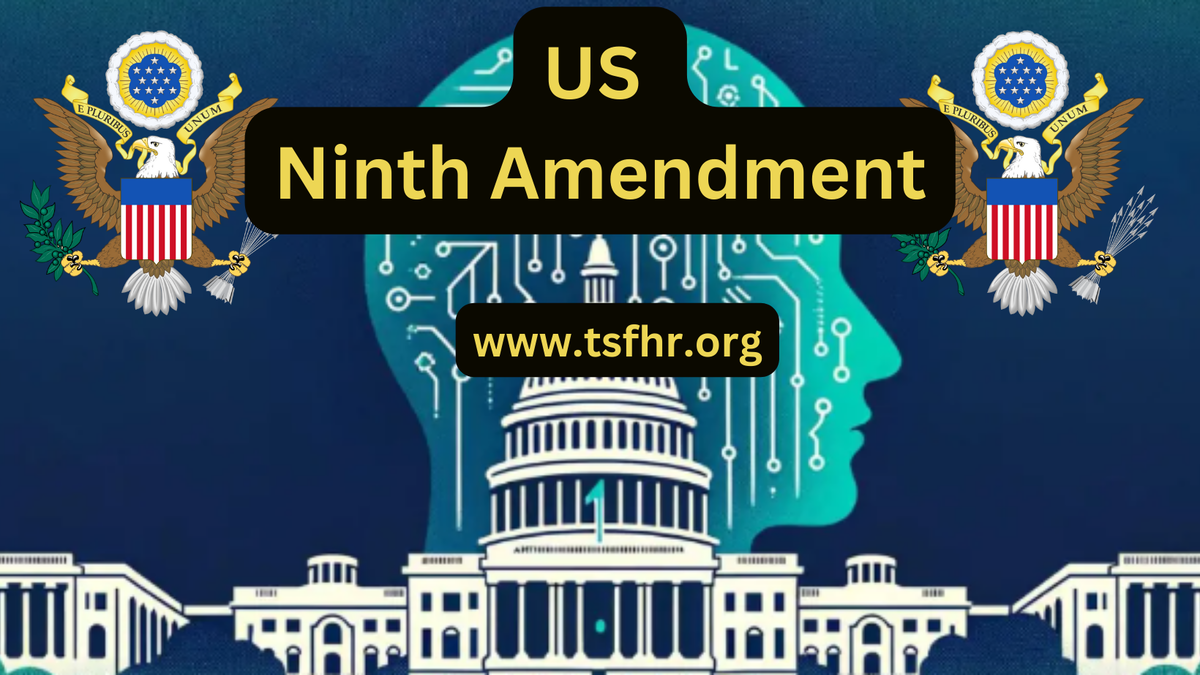What is the 9th Amendment in Simple Terms: Ever wondered if you have rights beyond those written in the Constitution? That’s exactly what the 9th Amendment ensures! It’s a vital part of the Bill of Rights that protects rights not explicitly listed. This article will explain what the 9th Amendment in simple terms is, when it was created, why it’s important, and how it impacts your rights today. Let’s dive into the details!
What Does the 9th Amendment Say in Simple Terms?
The 9th Amendment, ratified in 1791, declares that people have rights beyond those written in the Constitution. It prevents the government from infringing on 9th Amendment rights, even if they aren’t explicitly mentioned. In simple words, it ensures the Constitution doesn’t limit or exclude the unenumerated rights of individuals.
Here’s a summary of what the 9th Amendment means in simple terms:
- You have rights that exist even if they’re not written in the Constitution.
- The government cannot deny or violate these implied rights.
- It serves as a safeguard for individual freedoms.
When Was the 9th Amendment Created?
So, when was the 9th Amendment created? It was:
- Drafted as part of the Bill of Rights in 1791.
- Ratified on December 15, 1791.
- Added to ensure that listing specific rights wouldn’t limit other rights retained by the people.
The 9th Amendment was introduced to address concerns from Anti-Federalists, who feared that explicitly listing rights could lead to government overreach or the neglect of unenumerated rights. Why was the 9th Amendment created historically? To protect those unlisted rights and prevent a narrow interpretation of freedoms.
Why Was the 9th Amendment Created?
Why was the 9th Amendment created in simple terms? It was designed to:
- Protect unenumerated rights from government interference.
- Ensure that listing specific rights didn’t exclude others.
- Guarantee the rights retained by the people, such as privacy or personal freedoms.
For example, the 9th Amendment rights are often cited in cases where personal decisions, like marriage or family planning, come into question.
Why is the 9th Amendment Important?
The 9th Amendment is crucial because it:
- Safeguards individual freedoms not listed in the Constitution.
- Acts as a buffer against government overreach.
- Allows society to recognize new rights as it evolves.
Examples of why the 9th Amendment is important today include:
- Protecting privacy rights, as in the Griswold v. Connecticut (1965) case.
- Supporting debates around modern freedoms, such as marriage equality.
- Ensuring rights of the people aren’t constrained by a rigid interpretation of the Constitution.
Examples of the 9th Amendment in Action
Let’s look at 9th Amendment rights examples to understand how it works in real life:
- Privacy Rights: In Griswold v. Connecticut, the Supreme Court ruled that the right to privacy was implied under the 9th Amendment.
- Marriage Equality: Courts have used the amendment to support rights that aren’t explicitly listed but are considered fundamental.
- Evolving Protections: The 9th Amendment allows for the recognition of new rights as societal norms change.
FAQs About the 9th Amendment
Q1: What is the 9th Amendment in simple terms for kids?
It says you have rights even if they aren’t written in the Constitution—like having extra rights just because you’re a person!
Q2: What does the 9th Amendment say in simple terms?
It says the government can’t deny your rights just because they aren’t explicitly written in the Constitution.
Q3: Why was the 9th Amendment created?
To ensure people’s rights aren’t limited to those explicitly listed and to prevent government overreach.
Q4: Why is the 9th Amendment important?
It protects implied rights and ensures evolving freedoms, making it crucial in today’s world.
Q5: What does the 9th Amendment cover?
It covers rights that aren’t listed in the Constitution but are essential to individual freedom, like privacy and personal decision-making.
Conclusion: Why the 9th Amendment Matters
The 9th Amendment ensures that individual freedoms extend beyond what’s written in the Constitution. From protecting privacy rights to enabling societal progress, it plays a pivotal role in safeguarding liberties. Whether you’re curious about what the 9th Amendment means in simple terms or how it applies today, remember—it’s a vital reminder that our rights evolve with time.
Ready to explore more about constitutional rights? Keep learning, and appreciate the freedoms you enjoy—thanks to the 9th Amendment!
